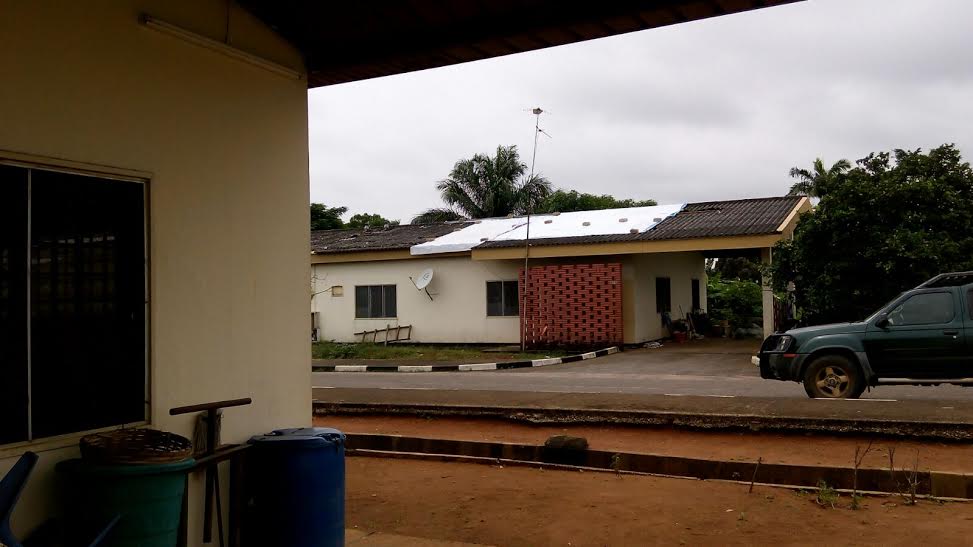BY IKE DAVID
Studies have shown a strong positive correlation between affordable housing availability and living standards, so it is not surprising that Nigeria has one of the lowest standards of living in the world when only 5% of the GDP is spent on real estate and only about 10% of that is spent on housing for low and middle income Nigerians.
The National Housing Policy has emphasized a ‘housing for all’ policy but is in no way close to achieving this aim to the detriment of the everyday Nigerian who most likely lives in an urban area (60% of the population) and in shelter that is deemed unfit for human habitation by international standards. That is, if there is shelter at all.
To achieve the injunction of the 1999 constitution that states that the Nigerian State should be required “to provide suitable and adequate shelter for all citizens”, it is important that all arms of government play a larger and more impactful role in housing provision across the country. The state governments, especially, need to increase efforts and regulations targeted at achieving this as they have greater control of the land needed for building new housing units.
Advertisement
The Land Use Act of 1978 has been a big part of the problems Nigeria has faced with providing housing for its many citizens. The act has had the effect of preventing private sector involvement in the housing market (without a matching increase in provision of public housing) due to the difficulty of the procedure of acquiring legal ownership of land and it has also hindered mortgage financing. A study by the World Bank in 2010 revealed that Nigeria has the highest cost of property registration and transfer (27.1% of the total property value); there are 21 processes required and the process can take anywhere from 6 months to 5 years depending on the state and location in question.
There are 2 processes that most agree take the most time – processing the certificate of occupancy and getting the Governor’s consent. This means that state governments themselves have a large role to play in making this process easier, starting by restructuring their own offices to work faster and more efficiently in processing important documents. Even more than just processing documents faster, state governments have the power to provide land for trusted private developers who will take on housing projects that are completed successfully. The governments can also ease the process by issuing certificates on time and without costs of bribery involved, ensuring that plans are inspected to show quality and provide approval immediately this is ascertained, providing in-state support throughout the building and sales process and preventing these private developers from taking advantage of the situation and charging exorbitantly to receive outrageous profits.
The state government should also be in charge of its local governments and customary systems to ensure that the frequent practice of double charging buyers of land and housing stops. Currently, many states experience double charges and much frustration due to situations where people who have paid for land are accosted by customary owners of the land (who already gave up the legal rights to the properties to the state governments) demanding that they get paid as well before letting the legal owner gain access to his/her own land. These practices will continue to divert money that would normally be invested into the housing market to other less contentious assets. On the other hand, the state governments must also realise that they must depend on local governments for information about the available resources, housing needs and unique characteristic of residents of the different LGAs. Lack of this coordination between state and local governments is one of the reasons government housing project plans to date have often become abandoned and/or unmanageable.
Advertisement
It is also important to consider the results of the Efina Report in 2010 that showed an estimated 90% of land in Nigeria do not even have legal papers. This essentially means that owners of this land are solely dependent on personal funds to build housing for personal use or rent because financial institutions generally will not give mortgages or loans to build housing on unregistered land (the land cannot be used as collateral). The onus is on the state government to encourage land owners to formalize their ownership or sell their land to the government, which will lead to the opening up of more land to build more housing and also give more land owners access to financing. The point about making the bureaucratic process easier also applies here as more traditional land owners will be willing to register their land officially is the process was simple and free of corruption.
So far, state governments have looked to the federal level for housing provision with the exception of a few states. This is not going to lead to efficient provision of housing especially considering that land provision is the most important factor in determining the number of housing units available. More public-private partnerships seem to be the way forward based on analysis of other developing countries that have seen large growth in housing and mortgage financing such as South Africa and Kenya. In holding state governments accountable, it is important that analysis of policies of state governments on the topic of housing focuses on the government’s commitment to such partnerships as well as the improvements in the land registration and transfer process.
Views expressed by contributors are strictly personal and not of TheCable.






